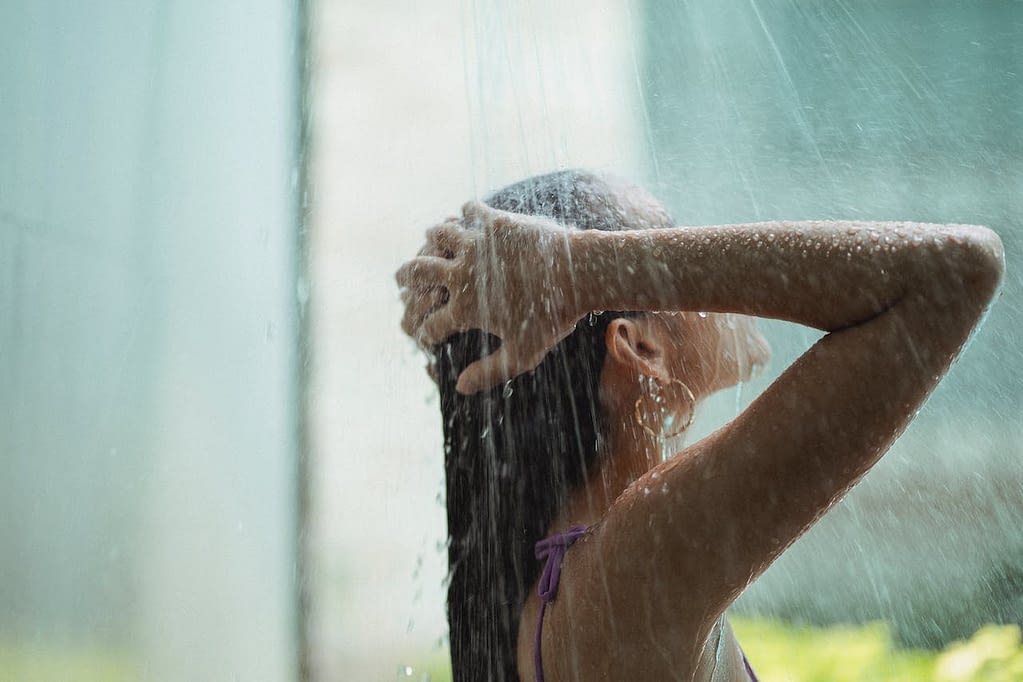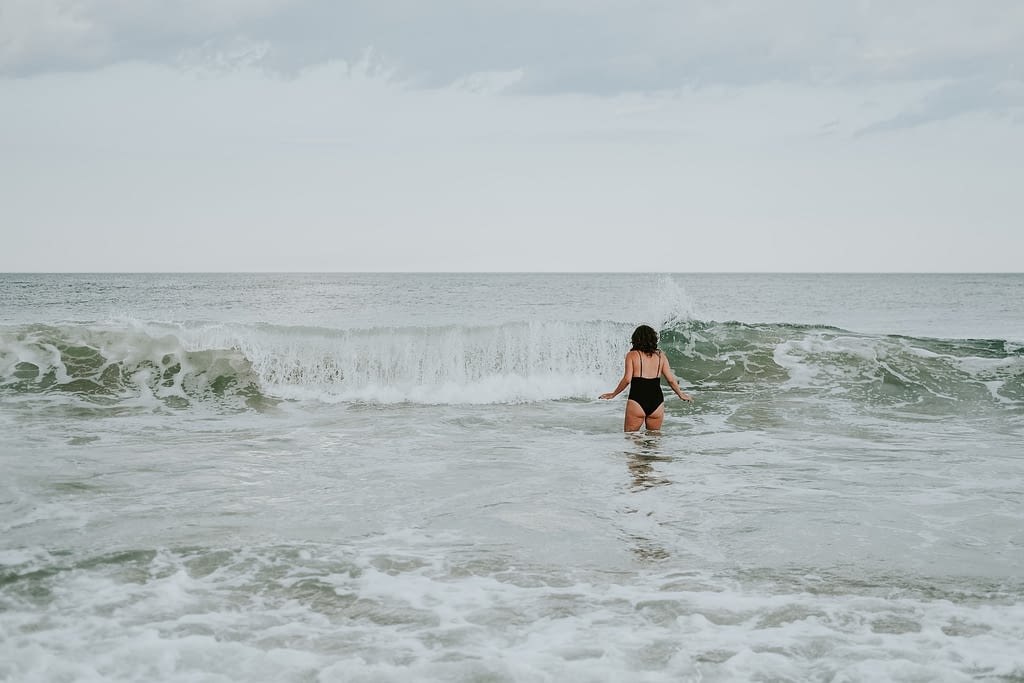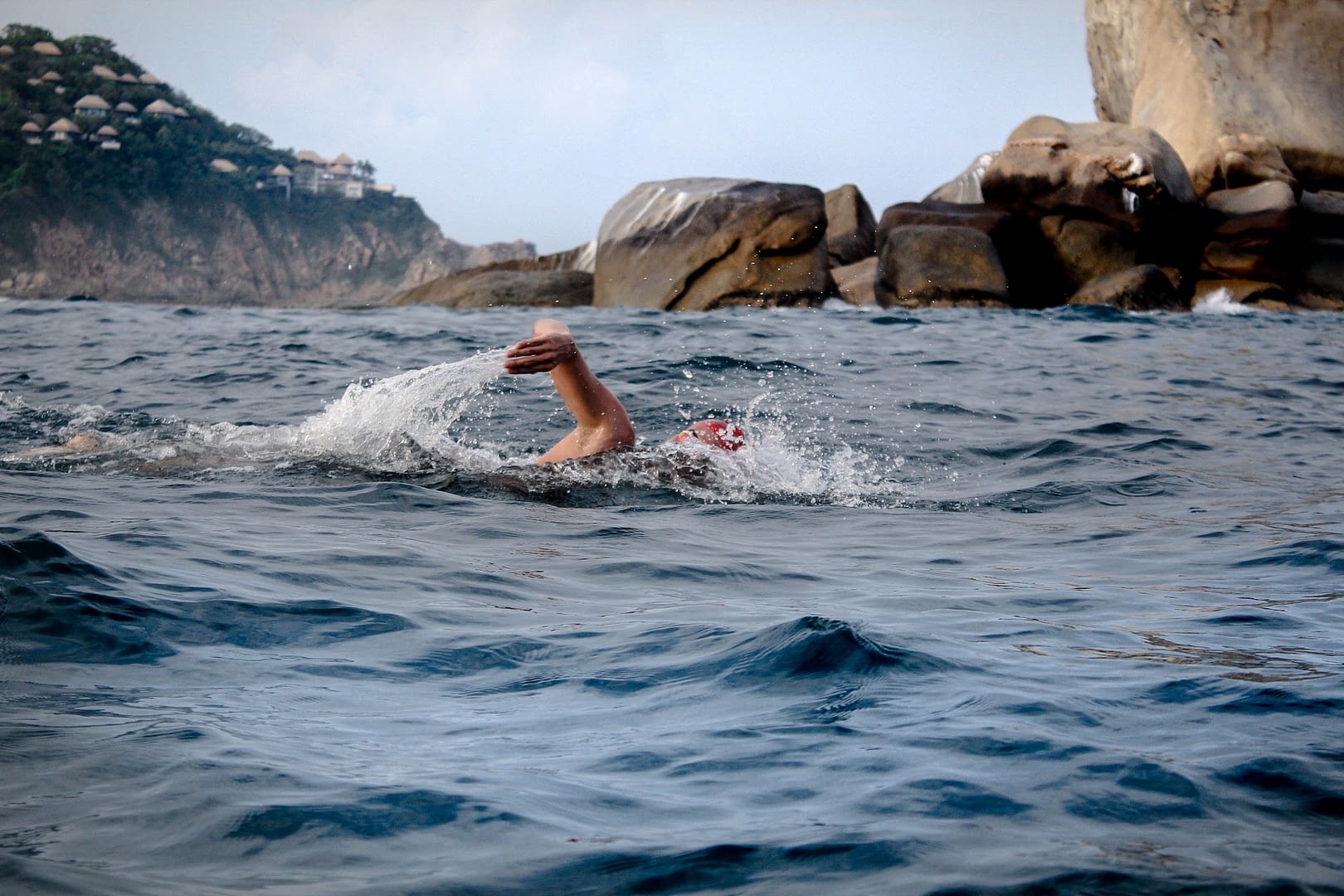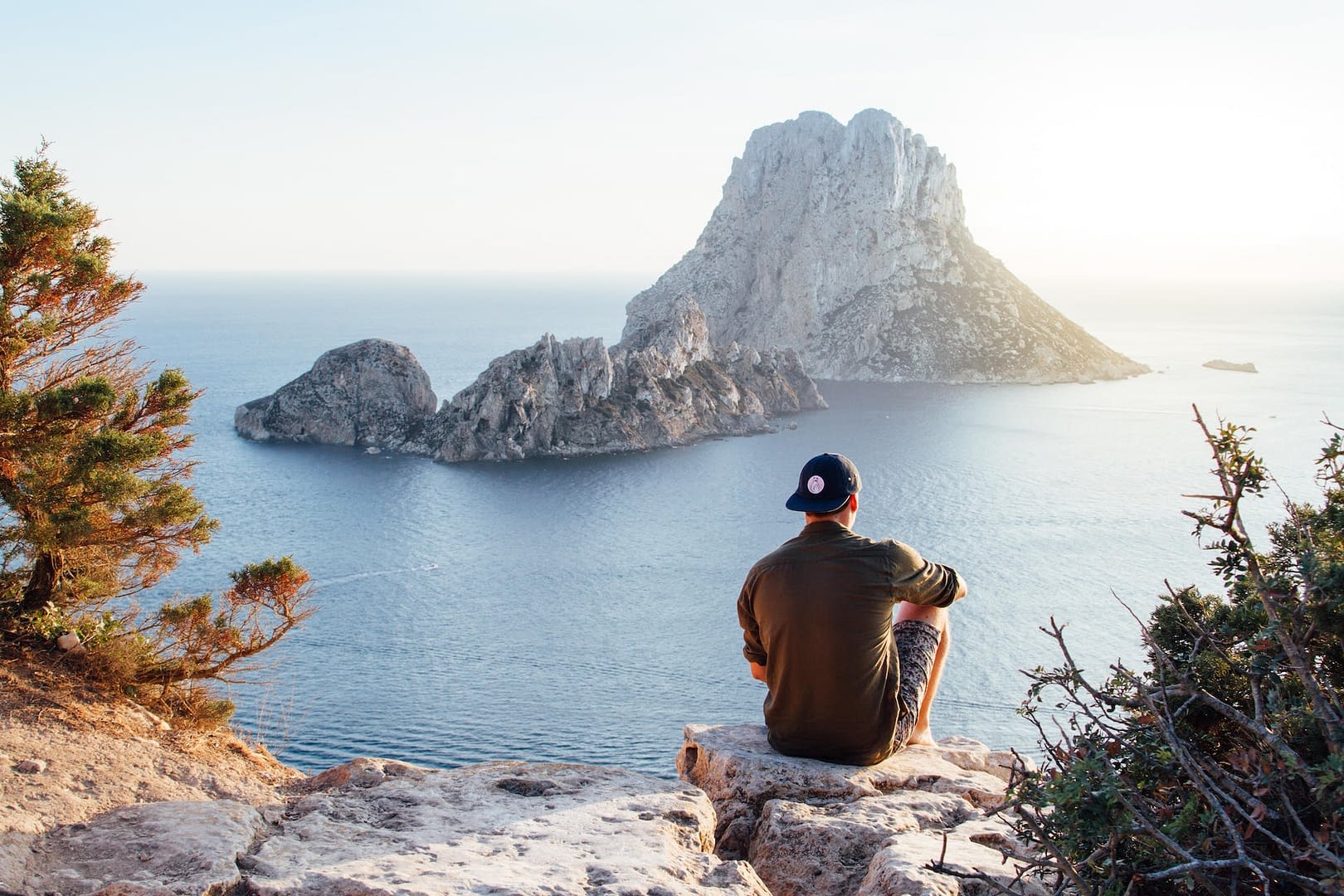Exploring the Benefits of Cold Water Swimming and Therapy
In recent years, cold water swimming and therapy have gained popularity as invigorating and health-boosting activities.
This article delves into cold water therapy, touching upon the fascinating connection between this practice and the Vagus Nerve, its myriad benefits, safety considerations, and practical tips on getting started.
Please Note—Some of the links in this post are affiliate links, meaning that if you click through and make a purchase, I will receive a small commission at no extra cost to you.
What is Cold Water Therapy?
Cold water therapy involves immersing your body in cold water for various health benefits.
One key player in this therapeutic process is the Vagus Nerve, a critical component of the parasympathetic nervous system. Activation of the Vagus Nerve during cold water exposure has been linked to improved mood, reduced inflammation, and enhanced overall well-being.
Benefits of Cold Water Swimming and Immersion
The benefits of cold water swimming and immersion are extensive. From boosting the immune system and increasing circulation, this practice is a holistic approach to wellness. Cold water exposure has been associated with improved cardiovascular health, increased metabolism, and heightened alertness.

Enhanced Immune Function
Exposure to cold water has been associated with a temporary increase in the production of white blood cells, contributing to a more robust immune system. Regular cold water swimming can help the body adapt to stressors, potentially reducing the risk of infections.
Improved Circulation
The cold water causes blood vessels to constrict and dilate, improving circulation. This enhanced blood flow can aid in delivering oxygen and nutrients to organ tissues, promoting cardiovascular health and reducing the risk of cardiovascular diseases.
Mood Enhancement and Stress Reduction
Cold water immersion triggers the release of endorphins, often called “feel-good” hormones. This natural mood boost can help alleviate symptoms of stress, anxiety, and depression. Additionally, activating the Vagus Nerve during cold exposure contributes to a calming effect on the nervous system.
The shock of cold water triggers an immediate physiological response, leading to increased alertness and mental clarity. Cold water swimming can be an effective way to kickstart your day with heightened focus and cognitive function.
Submerging yourself in cold water creates a stress reaction in the body in the same way it would in any stressful situation. The body releases the stress hormone cortisol, increasing breathing and heart rate. The body goes into fight or flight mode, so our natural reaction is to get out as fast as possible.
Evidence now suggests that repeatedly putting your body through cold water immersion gradually reduces the severity of the initial stress reaction. This means that the reduction in the stress response applies to other stressful situations, so we can handle them better, not just on exposure to cold water.
Increased Metabolism and Calorie Burn
Cold water stimulates the body to generate heat, activating brown adipose tissue (BAT), which burns calories to produce warmth. This metabolic boost can contribute to weight management and increased energy expenditure.
Pain Relief and Inflammation Reduction
The body reacts to the cold water shock by directing blood to protect your organs. The low blood flow in your limbs decreases inflammation and allows muscles to recover much quicker, so athletes often turn to cold water therapy for post-exercise recovery.
Enhanced Sleep Quality
Regular exposure to cold water has been linked to improved sleep patterns. The calming effect on the nervous system, coupled with the release of endorphins, can contribute to better sleep quality and a more restful night.
Skin and Hair Health
Cold water can improve skin and hair health by promoting circulation and closing pores. It may contribute to a healthier complexion, reduced inflammation, and shinier, stronger hair. In addition, salt water contains magnesium, calcium, and potassium, which are all good for the skin.
Is it Safe?
Safety is paramount, so it is crucial to approach cold water swimming and immersion gradually, being mindful of your own health and comfort levels, especially as a beginner.
Individuals with pre-existing health conditions should consult a healthcare professional before incorporating cold water therapy into their routine.
How to Get Started with Cold Water Swimming
Embarking on the journey of cold-water swimming requires careful consideration. Start by acclimating your body to colder temperatures with shorter sessions and gradually increasing duration. Pay attention to your body’s signals, and never push yourself beyond your limits.

A good tip for beginners is to start with cold showers at home and build up to open water.
Start with water temperatures around 10-15 degrees Celsius or 56-60 degrees Fahrenheit and gradually progress to colder temperatures as your body adapts. Sessions can initially last just a few minutes, gradually increasing over time. Listening to your body and avoiding prolonged exposure is essential to prevent hypothermia.
Equipment to get started:
Why the Mediterranean is Ideal for Cold Water Swimming
With its moderate climate, the Mediterranean offers an ideal setting for beginners to explore cold-water swimming. With milder temperatures compared to colder regions, the sea temperatures in winter fall within 10-15 degrees Celsius or 56-60 degrees Fahrenheit.
The Mediterranean provides a comfortable introduction to this invigorating practice. Therefore, it is accessible and enjoyable for individuals of all levels.

Summary
Cold-water swimming and therapy present a unique and exhilarating path to wellness. By understanding the principles behind this practice, embracing safety measures, and gradually immersing oneself in the cold, individuals can unlock the numerous physical and mental benefits that come with embracing the chill. Dive in and discover a new dimension of well-being.







